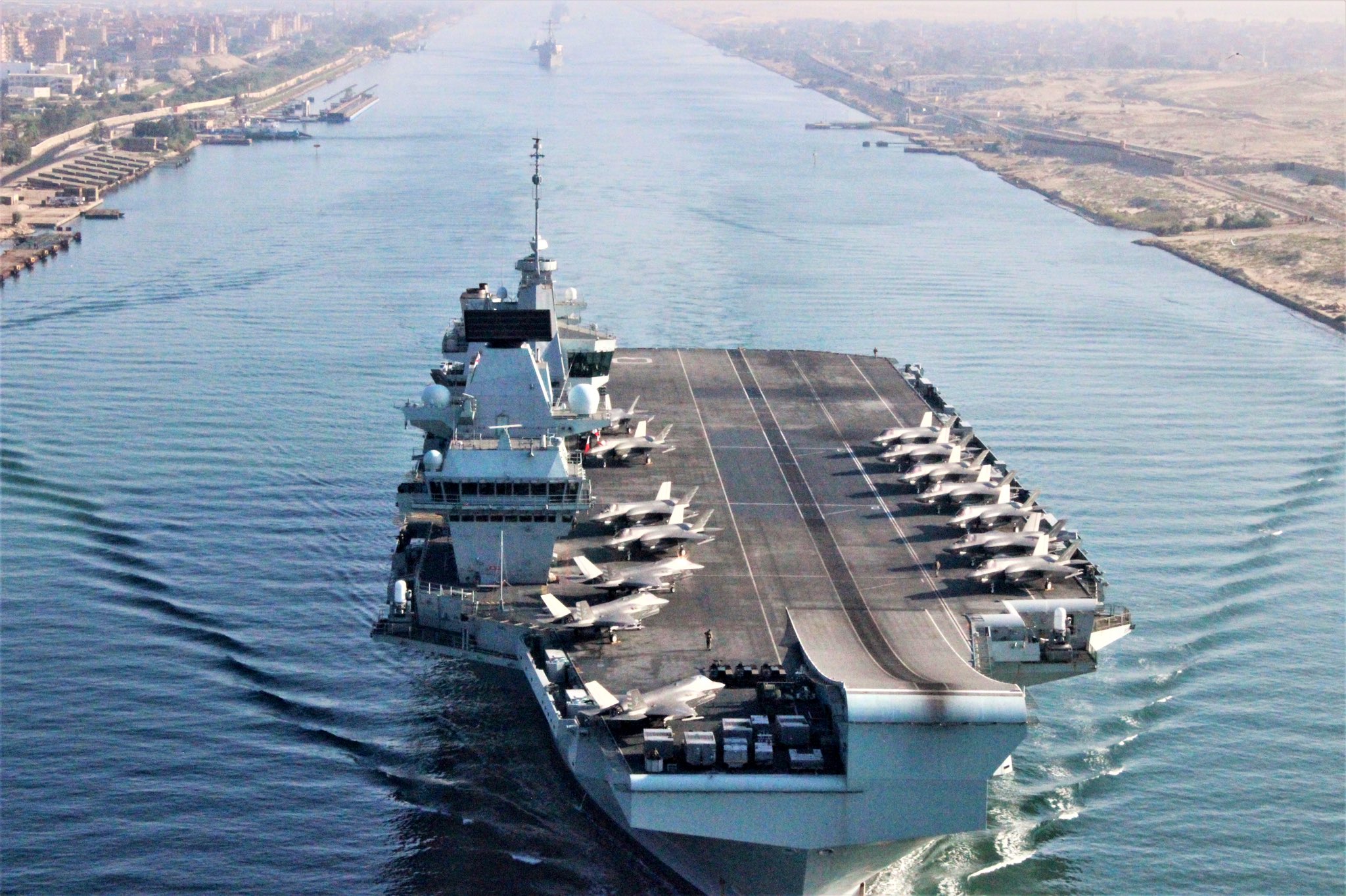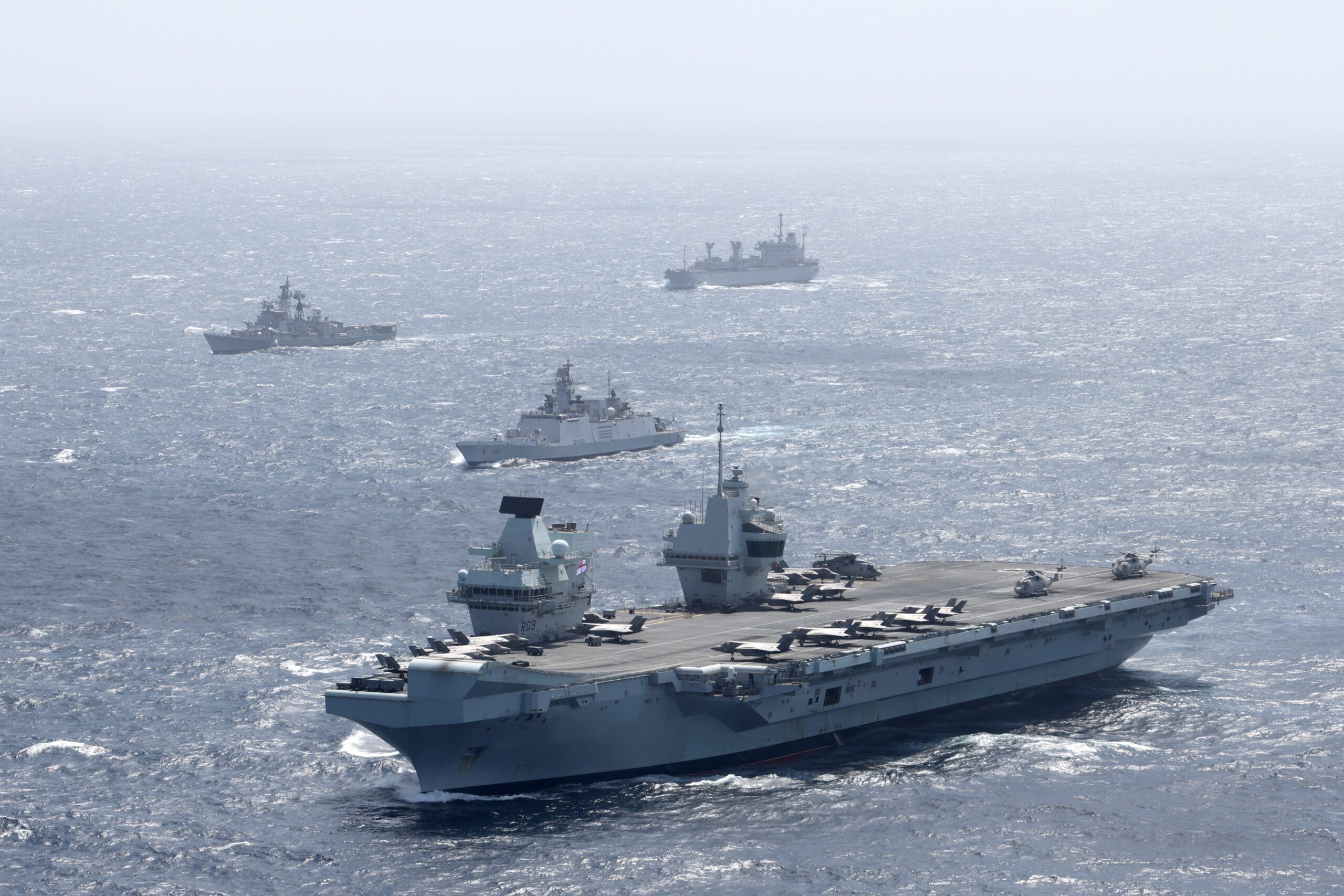Critics Suggest Selling Britain’s Two Troubled Aircraft Carriers to Allied Nations
Both British aircraft carriers are highly effective elements of power projection; however, unfortunately, since their commissioning in 2017 and 2019, respectively, each has encountered a variety of issues, leading some to consider their construction a wasteful endeavor
(DEFENCE SECURITY ASIA) — HMS Queen Elizabeth and HMS Prince of Wales are the two largest aircraft carriers ever built for the British Royal Navy, representing significant naval investments totaling approximately US$8 billion (RM37.7 billion).
Each vessel can accommodate up to 1,600 crew members and is capable of carrying up to 36 F-35B fighter jets (Vertical Short Take-off and Landing), excluding helicopters.
These carriers are crucial components of Britain’s power projection capabilities.
However, since their commissioning in 2017 and 2019 respectively, both ships have encountered various issues, leading some critics to label their construction as wasteful.
There have been suggestions for the British government to sell these ships to allied nations due to their persistent mechanical problems.
In February this year, HMS Queen Elizabeth was scheduled to lead the NATO Steadfast Defender exercise, the largest since the Cold War, but was forced to withdraw at the last minute due to issues with its starboard propeller.

The Royal Navy posted a statement on the social media channel X from Fleet Commander Vice Adm. Andrew Burns.
“Routine pre-sailing checks yesterday identified an issue with a coupling on HMS Queen Elizabeth’s starboard propeller shaft. As such, the ship will not sail on Sunday. HMS Prince of Wales will take her place on NATO duties and will set sail for Exercise Steadfast Defender as soon as possible,” reads the statement.
HMS Queen Elizabeth had also experienced a minor fire while docked in Scotland, although damage was minimal and no one was hurt.
Meanwhile, despite being in service for only five years, HMS Prince of Wales has had a lengthy history of malfunctions.
In 2020, it was immobilized in Portsmouth when its engine room flooded, damaging the electrical system. Over two years, the ship spent only about 90 days at sea due to repeated leaks.
In 2022, as it prepared for deployment to the United States for exercises, it suffered damage that required immediate repairs to its starboard propeller.

To expedite repairs, the Royal Navy decided to “cannibalize,” meaning they transferred equipment from HMS Queen Elizabeth to HMS Prince of Wales.
A Royal Navy spokesperson stated that this practice of cannibalization is acceptable as it allows for quick resolution of issues and ensures the ship can return to its mission promptly.
Amid these mechanical issues, the British defense budget crisis is also putting pressure on its military capabilities.
British media suggest that the Royal Navy may have to either decommission or sell the 65,000-ton HMS Prince of Wales at a reduced price to friendly nations to address the critical budget shortfall.
Sources within the Royal Navy indicated that a decision on the fate of HMS Prince of Wales might be necessary as early as 2028, according to the Daily Mail.
The Maritime Enterprise Planning Group, which oversees naval planning and strategy, has reportedly discussed scenarios where selling the carrier could be a viable financial solution for the armed forces.




Comments are closed.